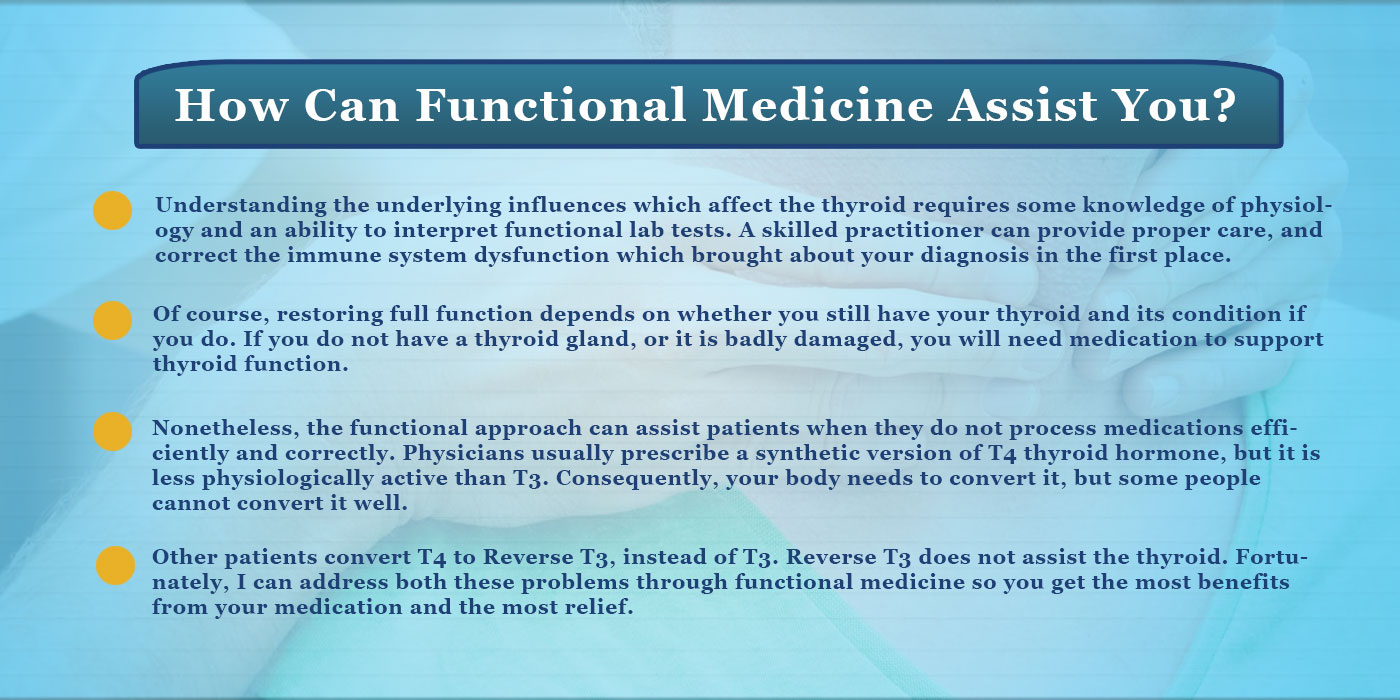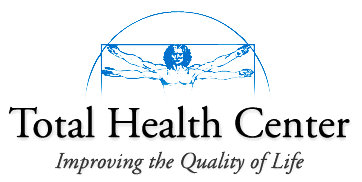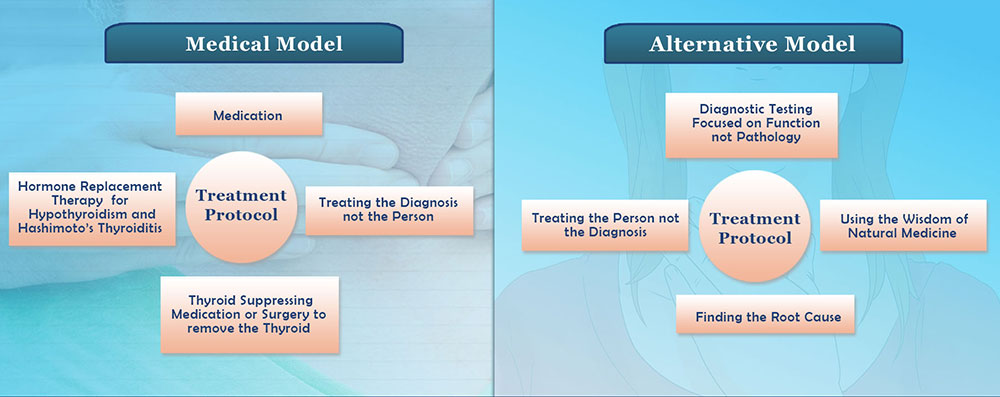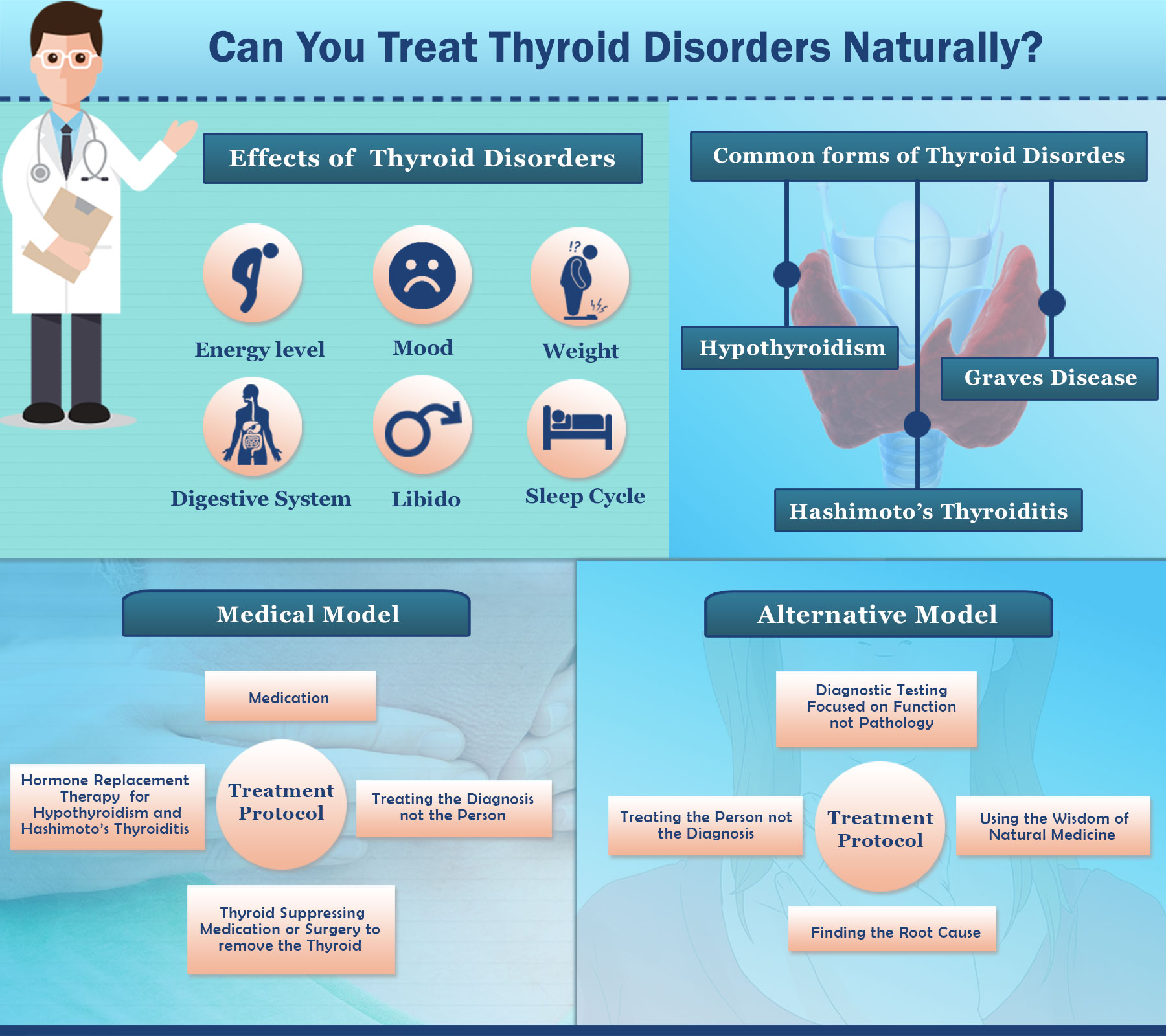Thyroid disorders often negatively impact a patient’s quality of life. They can affect a patient’s energy level, mood, weight, digestive system, libido, sleep cycle, and more. Besides that, conventional treatment protocols often include prolonged use of synthetic medications or even surgery, in certain cases. It’s not surprising many patients with thyroid disorders look for natural alternatives.
The most common forms of thyroid disorders are primary hypothyroidism, Hashimoto’s thyroiditis, and Graves’ disease. Unfortunately, the medical community is often clearly divided between two schools of thought on health and disease: the medical model or the alternative model.
The Medical Model
In the medical model, doctors focus on analyzing symptoms and then narrowing the possibilities until they come up with a diagnosis. The physician then follows a set treatment protocol to treat the ailment. Treatment often includes medication.
The standard treatment protocol for hypothyroidism and Hashimoto’s thyroiditis is hormone replacement therapy. The American Association of Clinical Endocrinologists recommends synthetic T4 levothyroxine for clinical hypothyroidism to restore the thyroid stimulating hormone to normal levels.
In Grave’s disease, the thyroid gland produces too much thyroid hormone. The standard treatment protocol includes thyroid-suppressing drugs or surgery to remove the thyroid. Many physicians in the United States prefer to use radioactive iodine as first-line therapy.
The Alternative Model
Unfortunately, the alternative model is often thrown into one large heap, when multiple models actually exist within it. These include naturopathy, acupuncture, herbalism, and functional medicine. This article focuses on the functional medicine approach to thyroid disorders.
Functional Medicine
In the functional model, the practitioner examines all aspects of a person’s health. They look for the root cause of a problem, instead of treating the symptoms. For instance, many possible causes exist if a person suffers from depression. One person may have a blood sugar imbalance, while another might have mineral deficiency. It doesn’t make sense to treat all depression in the same manner, if the root cause differs.
Some alternative models use similar paradigms. For example, herbal practitioners might recommend St John’s Wart for a patient with certain types of depression once they understand the underlying cause.
I feel this model draws on the wisdom of other alternative disciplines and blends it with the scientific data collected from functional lab tests. It also engages the patient in a therapeutic partnership where they actively participate in their well-being, important for recovery.
Hashimoto’s Thyroiditis & Graves’ Disease
In Hashimoto’s and Grave’s disease, the functional approach seeks sources of stress on the immune system. Grave’s and Hashimoto’s are autoimmune disorders, and not really thyroid issues at all. Thyroid dysfunction is just a symptom of the underlying cause: a dysfunctional immune system.
Autoimmunity develops for many reasons. Again, each person is unique and requires specialized tests and treatments depending on the underlying cause. For example, if a person has a condition called “leaky gut syndrome” it may result in undigested food particles in the bloodstream and cause an immune response.
Food allergies or food sensitivities may also cause an immune system reaction. When you continue to eat troublesome foods it may eventually lead to an autoimmune condition.
Since these thyroid problems can have many underlying causes, we cannot define a standard treatment protocol or a standard of care for thyroid conditions. Regrettably, the multiple factors that contribute to these diseases also make it very difficult to self-treat.
How Can Functional Medicine Assist You?
Understanding the underlying influences which affect the thyroid requires some knowledge of physiology and an ability to interpret functional lab tests. A skilled practitioner can provide proper care, and correct the immune system dysfunction which brought about your diagnosis in the first place.
Of course, restoring full function depends on whether you still have your thyroid and its condition if you do. If you do not have a thyroid gland, or it is badly damaged, you will need medication to support thyroid function.
Nonetheless, the functional approach can assist patients when they do not process medications efficiently and correctly. Physicians usually prescribe a synthetic version of T4 thyroid hormone, but it is less physiologically active than T3. Consequently, your body needs to convert it, but some people cannot convert it well.
Other patients convert T4 to Reverse T3, instead of T3. Reverse T3 does not assist the thyroid. Fortunately, I can address both these problems through functional medicine so you get the most benefits from your medication and the most relief.

Experience taught me the medical model does have its place. It can assist patients so they can manage symptoms and it can provide a diagnosis for thyroid problems.
Nonetheless, it does not address the root of the problem. A functional model delves into the underlying causes to prevent further issues and reverse existing problems, instead of treating symptoms.
Naturally, I look forward to a time when the medical and functional models blend for seamless, effective patient care. Both have many benefits, but together they could provide targeted, streamlined care, and recovery.
Mark A. Scott, D.C., C.N.S., C.F.M.P.
Get more information on the functional approach to thyroid treatment or schedule a free consultation with Dr. Mark Scott of Total Health Center Virginia Beach.


